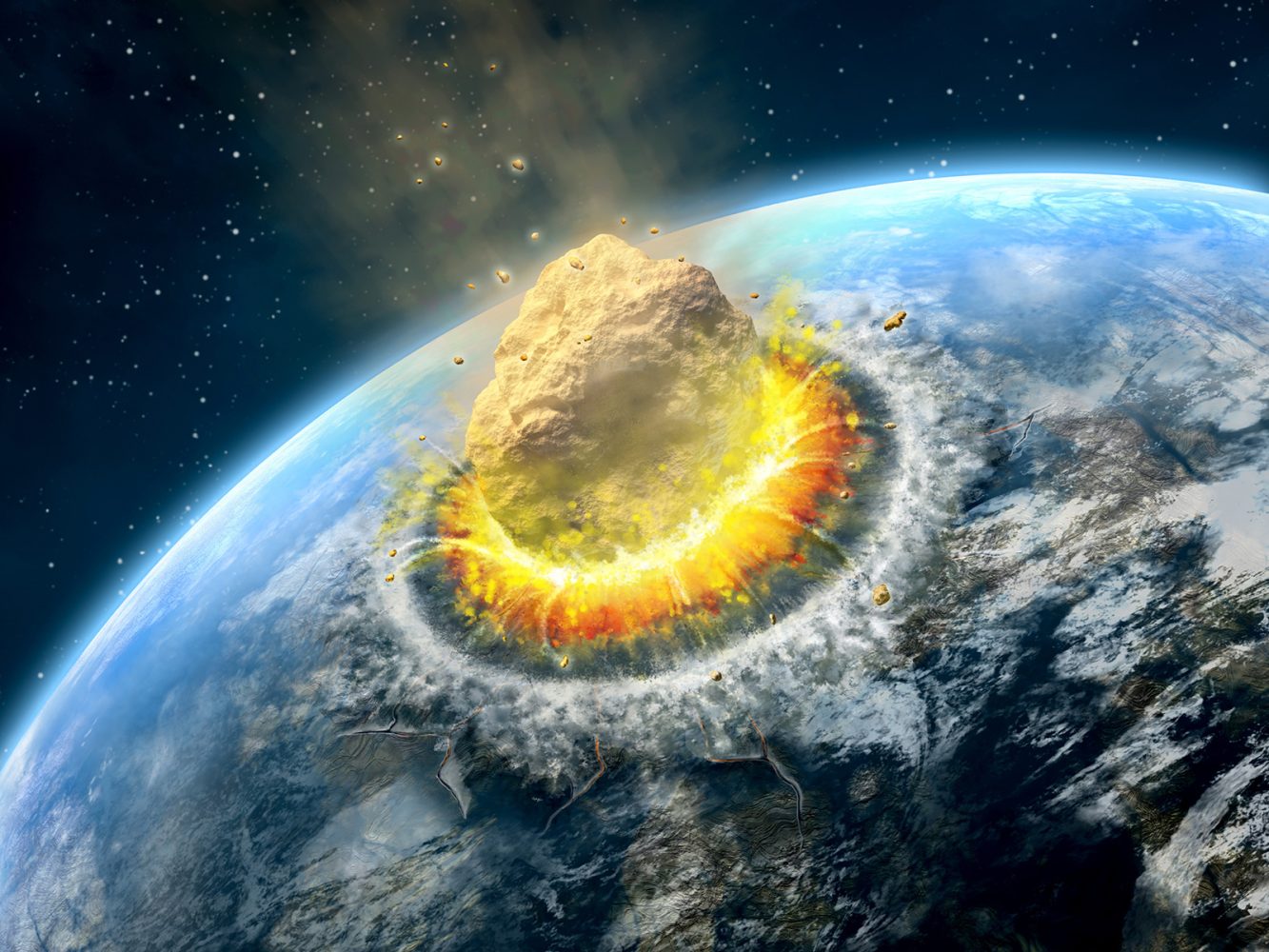Three billion years ago, Earth was a lifeless husk. At least, that’s what some scientists believe. However, that lifeless husk may have found a healthy kickstart when a massive meteorite four times the size of Mount Everest struck the planet, spurring the growth of bacteria that may have helped form early life on Earth.
This new revelation is heavily detailed in a new paper published in PNAS this month. The paper is headed by early-Earth geologist Nadja Drabon, who is also an assistant professor in the Department of Earth and Planetary Sciences at Harvard. Drabon has long been curious about what our planet was like when it was rife with meteorite impacts, and this new research could provide massive insights into that history, and the history of complex life on Earth.
The meteorite impact in question is often referred to as the S2 meteoritic impact, and geological evidence appears to show that the impact not only devastated our planet because of its size, but it also enriched it greatly, paving the way for early life on Earth to sprout out of the cracks—figuratively at least.
The S2 meteorite is estimated to have been up to 200 times larger than the asteroid that killed the dinosaurs. When it impacted, it would have created a massive tsunami capable of mixing up the ocean and flushing debris from inland out to coastal areas. Furthermore, heat from the impact would have caused the ocean’s top layer to boil, while also heating up the atmosphere.
Together, this would have shut down any photosynthetic activity taking place here on Earth. So, how exactly could those conditions allow for early life on Earth to grow? Well, the secret there is in the bacteria. These little buggers are extremely hardy, and the bacterial life on Earth during those days would likely have bounced back extremely quickly after the impact.
That means a large increase in unicellular organisms, the team posits in its new paper. Further, the impact would likely have stirred up iron and phosphorus from the deep ocean, allowing bacteria that feed off those substances a front-row seat to an all-you-can-eat buffet.
Exactly what happened from there is still a bit of a mystery. But, those bacteria would have had all they needed to evolve into more, allowing early life on Earth to grow almost uncontrollably.
The post A meteorite strike 3 billion years ago may have helped kickstart life on Earth appeared first on BGR.
Today’s Top Deals
Best deals: Tech, laptops, TVs, and more sales
Amazon gift card deals, offers & coupons 2024: Get $450+ free
Today’s deals: Apple Watch Series 10, Ninja Blender, Dreo space heaters, portable tire inflator, more
Today’s deals: Govee AI Sync Box 2, $55 Vizio soundbar, $499 M2 Mac mini, Acer Aspire Go 15 Slim laptop, more
A meteorite strike 3 billion years ago may have helped kickstart life on Earth originally appeared on BGR.com on Wed, 23 Oct 2024 at 18:01:00 EDT. Please see our terms for use of feeds.
